Who Died?
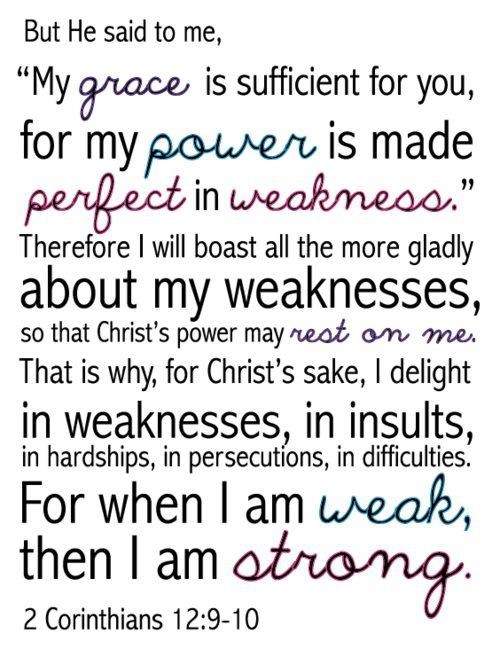
Around this time in 2012, I was living in survival mode. Overwhelmed by life circumstances, I woke up every morning with anxiety and fear that on any given moment, I just might crack.
It had been a trying year for our family, and one full of tests. I felt like I couldn’t catch a break because crazy things kept happening.
First there was the tree that fell on our newly renovated home. Then there were two close calls involving my kids. All the while, other stressors kept popping up, like my daughter being on crutches, and having our rental house listed, which required more upkeep on my part. My husband had started a new job with a commute, and while this was good, it left me to oversee the home renovations he’d been handling.
Add to this that I was preparing to move my family for the 4th time in 14 months, and you may understand why I was completely exhausted.
I missed my normal life.
My stress came to a head one night as I worked on a column that had consumed me all day. Although it read fine, it didn’t reflect the amount of time I’d put into it. This angered me and made me question why I write in the first place because I can be so painfully slow at it.
Nearby, I heard my husband saying bedtime prayers with the girls. All I could feel at that moment was guilt.
If I was a good mom, I told myself, I’d be doing that. I wouldn’t be such a busy bee. I’d find time to relax with my kids even when things were chaotic, even when I can barely keep my head above water.
Completely down on myself, I joined my family in prayer. As the girls noticed me crying, they asked what was wrong.
“Who died?” said Marie Claire, age five at the time. Her question certainly put things in perspective. I explained that no one died, I just felt like a bad mom. At once their little bodies shot up in bed.
“You’re a great mom!” Ella cried. “You always plan awesome birthday parties, and whenever the teacher asks for something, you always send it in.”
“And whenever we need you, you always help us,” Sophie added.
As my kids lifted my spirits, one thing stood out: the quality I often chastise myself for – being a busy bee – was exactly what they appreciated most about me. My kids understood and liked the way that I show love through actions. In that moment, I could accept how God made me. I could refrain from feeling guilty because I’m not the kind of mom who likes to play board games on the floor, get dirty in the yard, or do things that a “good mom” is supposed to do.
The next morning, my sister Krissie called. We were having a normal conversation when suddenly she paused and asked, “Are you mad at me?”
“No. Why would you say that?”
At first Krissie was silent. Then she started crying. With a little coaxing from me, she said that she’d felt disconnected from me lately. As all my insecurities from the night before came back, I started crying, too. Not only am I a bad mom and wife, I thought, I’m a bad sister.
What followed was therapy as I told Krissie that I’d disconnected from everyone recently because 1) my plate was so full, and 2) I felt isolated in my rental home. I told her about my breakdown and how I’d been internalizing my stress, trying to push through it with prayer but not having much success.
Talking to my sister reminded me how much I needed human interaction. By the time we hung up, I felt better.
Later in the day Krissie emailed me some thoughts I found pivotal. Apparently, she’d had her own breakdown the Sunday before when her husband came home from a trip. Krissie had set aside four hours Saturday to be “with” her kids, doing nothing but hang out, but instead of finding this relaxing and enjoyable, she was stressed.
She found herself craving the company of adults and felt like a failure for not appreciating her kids more.
The next morning, Krissie picked up a book on saints that our priest had distributed on Christmas Eve. Opening to Saint Peter’s chapter, she was struck by the first line, excerpted from Soul Brothers:
“On the personal level, which is where it all starts, Peter is a grand and honest statement about how we all come to God. The pattern is a great surprise, and for many a great shock and even disappointment. We clearly come to God not by doing it right but ironically by doing it wrong.”
Krissie’s email went on to say that while Peter had characteristics of a strong leader, he also had moments of failure. It was in these failures where he realized his dependency on God. Krissie’s conclusion was this:
“When we have those moments of looking at precisely how terrible we are as parents, these are the times when we know God is present. We forget all our desires, ambitions and self-filled ideas and recognize our pure inadequacy without God. So in a sense, Marie Claire’s question, ‘Who died?’ was right. You, me, and all moms who have these moments are dying to self but, in the process, growing closer to God.”
I’m sharing this story because I know Krissie and I aren’t alone. We all have breakdowns, moments when we feel inadequate and want to throw in the towel. But by humbling ourselves before God, these breakdowns can be a catalyst for change. They can help us surrender to God so that our weaknesses are turned into strengths.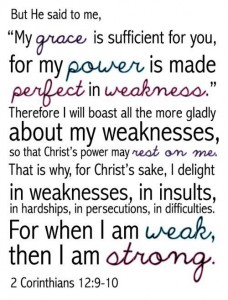
In that stressful chapter of my life, I felt a closeness to God that I missed once we moved back into our home and life returned to normal. I missed waking up every morning and begging God for strength to handle the day before my mind could register a thought.
To some people this may not make sense, but I have friends who have been through seasons of extreme suffering and say this same thing, that in their darkest hour they experienced an intimacy with God that they missed once the storm passed.
The fact is, none of us want to suffer, and none of us would ever anticipate the trials that come with being human.
But when we look at our hard times as opportunities to grow closer to God, and understand how suffering gives us a heart for others who suffer, we see how it can enrich our relationship with Christ, who suffered in the worst way before resurrecting to new life.
As we approach this Easter Sunday, let us contemplate the question “Who died?” in terms of Jesus’ death on the cross and our death to self. Let’s reflect on the words of John 3:30: “He must become greater; I must become less.” To die to self means leaving behind self-centered thoughts and ways. It means being less self-reliant and more Christ-reliant.
And while dying to self can be painful, it’s essential to the Christian walk. It’s the ultimate means to spiritual growth and renewal. And when we remember what St. Paul says in 2 Corinthians 12 about God’s grace being sufficient, and His power being made perfect in weakness, we gain the courage to boast about our weaknesses so the power of Christ may dwell in us, and God can do His best work through us because our hearts have been humbled and are completely open and surrendered to Him.
******************************************************************************************************************************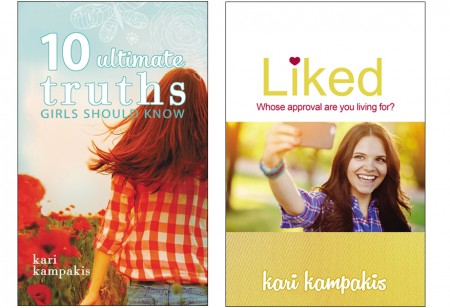
Thanks for reading this article today. If you found the message helpful, please share it through social media.
I’m grateful for my readers and would love to connect. You can subscribe to my blog, join my Facebook community, or find me on Instagram, Twitter, or Pinterest.
Also, I’ve written two books for teen & tween girls designed to empower them through faith. The newest one, Liked, is getting a fantastic response as a unique resource for girls of the digital age, and along with the bestselling 10 Ultimate Truths Girls Should Know, it’s being used widely across the U.S. for small group studies.
Have a great day, and thanks again for stopping by!
Posted by Kari on March 28, 2013

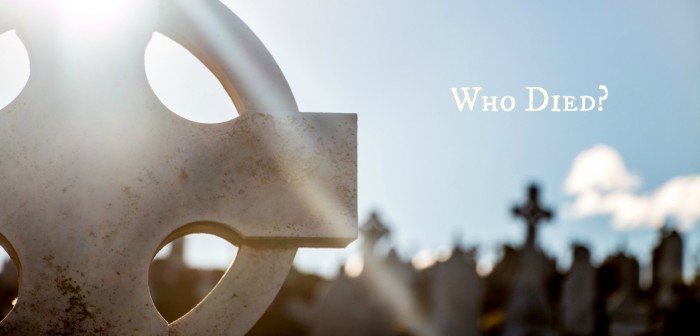

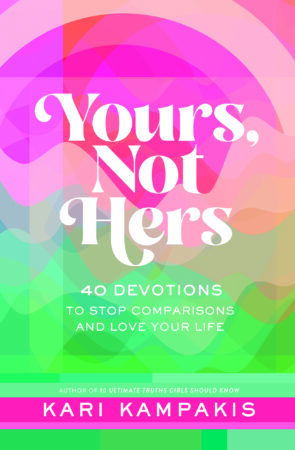





0 Comments